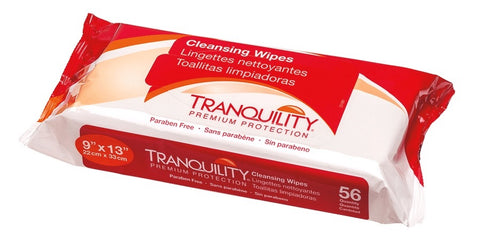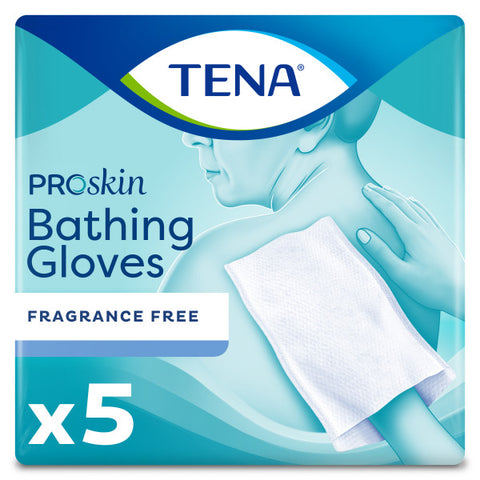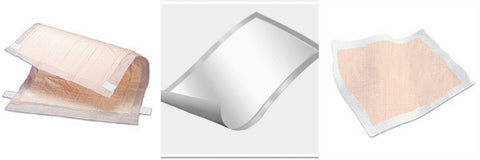How to prevent incontinence odours?

So many Canadians are juggling personal demands these days. Caring for yourself or someone else during COVID-19 brings added pressures.
Here at My Liberty we are asked how to deal with the smells from incontinence. It's a bit different from the days of having a baby in the house, and we are glad to offer our advice.
We canvassed the crew, and have five tips for you:
1. Perform perineal care with each pad or adult diaper change
- Peri-care—also known as perineal care—involves cleaning the private areas. Because this area is prone to infection, it must be cleaned at least daily, and more if you or your loved one suffers from incontinence.
- Observing a “continual care” routine is more effective at reducing odour-causing bacteria on the skin than just AM and PM care.
- A gentle, no-rinse periwash with moisturizing properties helps to make this procedure fast, simple and effective for reducing odours and promoting the individual's comfort and dignity.
Examples of peri-wash cleansing options
TENA ProSkin Cleansing Cream, an alternative to soap and water, offers a 3-in-1 formula that promotes skin health by gently cleansing, moisturizing and soothing vulnerable skin.
Paraben and alcohol-free Tranquility Personal Cleansing Wipes are hypoallergenic with a mild scent. Their generous 9” x 13” size allows for quicker cleanup.

Available in 3 formulations, Classic, Ultra Skin Moisturizing or Ultra Scent-Free
TENA ProSkin Washcloths are soft, pre-moistened wipes convenient for waterless bathing or skin cleansing anywhere on the body.
Have a look at TENA's ProSkin Bathing Glove, developed to better care for fragile skin and minimize cross-contamination. These innovative bathing gloves provide a more convenient and efficient routine.
As each glove is pre-moistened with body wash, it eliminates the need for soap, water, basins or additional towels, making for less laundry.
The gloves can we warmed in the microwave for a more soothing bathing experience.
2. Select and apply the best absorbent incontinence products
Select absorbent products containing superabsorbent polymers and built-in odour control. Here are some examples from TENA Canada:
TENA ProSkin Briefs Ultra or Super Absorbency, for nighttime or extended wear adult diapers
The absorbency, style and size of the product should suit the specific needs of each individual. This is key for preventing odour-causing leakage onto clothing, chairs or bedding.
Follow proper application procedures to ensure the product is comfortably yet snuggly applied to keep odours from escaping through gaps. Learn how with this video:
Watch video (2 minutes, 40 seconds): Unassisted application procedure using Abena Abri Form Adult Diaper
Proper removal and disposal of a soiled incontinence product
- When removing a soiled product, immediately roll it up to prevent ammonia odour from escaping into the air.
- Use the brief fasteners to keep it rolled tight with the absorbent fluff side facing inward.
- Immediately place the soiled product in a designated container with a secure lid or follow your home’s policy.
- Change absorbent products containing stool immediately.
3. Proper care for clothing, bedpans, urinals and commodes
- Ensure urinary collection devices are promptly emptied, rinsed, cleansed and stored to prevent urine odour.
- Observe clothing and bedding for signs of leakage or urine staining. If leakage is becoming a frequent occurrence, reassess the suitability of the absorbent product, the application technique, and the toileting program.
- Consider introducing absorbent bed pads - washable or disposable - to reduce the need full bedding changes:
Disposable bed pads offered by Tranquility, TENA and Prevail
4. Monitor fluid intake and report strong urine odour
- Concentrated, odorous urine is often caused by dehydration or may indicate the presence of urinary tract infections (UTI)
- Check the doctor’s orders to ensure that the individual is not on fluid restrictions due to other medical conditions.
- Encourage fluids throughout the day to maintain hydration
5. Promote continence
- Eliminate odour by keeping the individual dry and continent as much as possible.
- Cindy Clegg






Comments 0